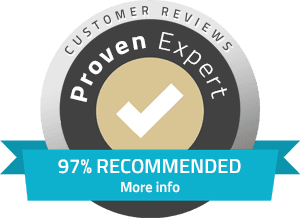A good digital marketing strategy is multi-faceted and tailored to meet the specific goals and needs of a business. Here are key elements that make up an effective digital marketing strategy:
1. Clear Goals and Objectives
- SMART Goals: Achievable, Measurable, Relevant, and Time-bound objectives are often known as SMART goals.
- Align marketing objectives with business goals (e.g., brand awareness, lead generation, sales growth).
2. In-depth Understanding of the Target Audience
- Buyer Personas: Detailed profiles representing the ideal customers, including demographics, interests, pain points, and buying behaviors.
- Audience segmentation to tailor messages and campaigns effectively.
3. Comprehensive Market and Competitor Analysis
Competitor analysis to understand their strategies and find gaps or opportunities.
4. Integrated Multi-Channel Approach
- Content Marketing: High-quality, relevant content tailored to different stages of the buyer’s journey.
- SEO (Search Engine Optimization): Optimizing website content to rank higher on search engines.
- Social Media Marketing: Leveraging platforms like Facebook, Instagram, LinkedIn, and Twitter to engage with the audience.
- Email Marketing: Personalized email campaigns to nurture leads and retain customers.
- Paid Advertising: Using Google Ads, social media ads, and other paid channels to drive traffic and conversions.
5. Consistent Branding and Messaging
- Clear and consistent brand voice and visual identity across all digital channels.
- Cohesive messaging that aligns with brand values and resonates with the target audience.
6. Data-Driven Decision Making
- Use of analytics tools to track performance metrics (e.g., Google Analytics, social media insights).
- Continuous monitoring and analysis to understand what works and what doesn’t.
- A/B Testing: Experimenting with different versions of content, ads, and emails to determine the most effective approaches.
7. Personalization and Customer Experience
- Tailoring content, offers, and communications to individual preferences and behaviors.
- Ensuring a seamless and user-friendly experience across all digital touchpoints (website, mobile, social media).
8. Agile and Adaptive Strategies
- Flexibility to adapt to market changes, emerging trends, and new technologies.
- Regularly updating and refining strategies based on performance data and market feedback.
9. Effective Use of Technology and Tools
- Marketing automation tools to streamline and enhance campaign management.
- CRM systems for better customer relationship management and segmentation.
- Advanced analytics and reporting tools to gain deeper insights.
10. Strong Focus on ROI
- Clearly defining KPIs (Key Performance Indicators) to measure success.
- Regularly evaluating the ROI of different campaigns and channels.
- Optimizing budget allocation based on performance data to maximize return on investment.
11. Continuous Learning and Improvement
- Keeping up-to-date with the latest trends, best practices, and changes in digital marketing.
- Investing in training and development for the marketing team.
- Encouraging a culture of experimentation and innovation



